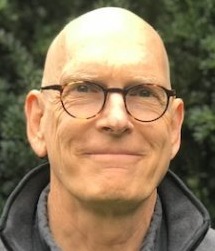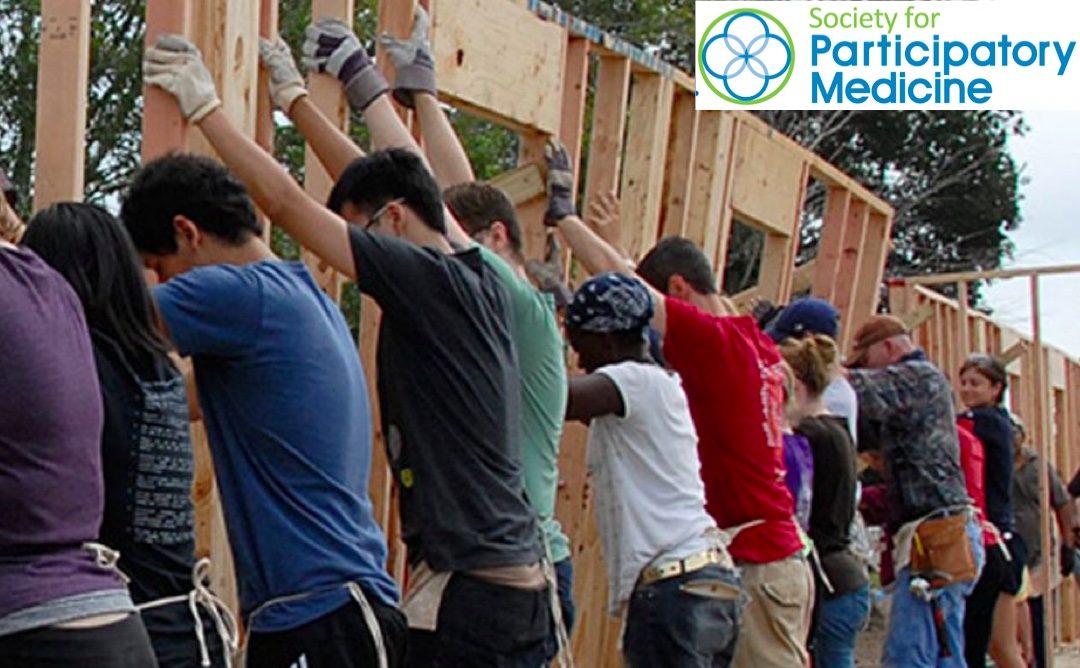Editor’s note: this guest post by SPM member and lymphoma survivor Brad Power (LinkedIn) shares his journey to our society and our #S4PM2019 conference last October. Members can submit guest posts to our blog (guidelines). Join SPM here.
Here’s the introduction video he made for this website ReengineeringCancerTreatment.com. Below is his post.
 I was diagnosed with lymphoma in July 2018 and started a course of chemotherapy, which thankfully went well. Today I have no evidence of disease, and I’m feeling great.
I was diagnosed with lymphoma in July 2018 and started a course of chemotherapy, which thankfully went well. Today I have no evidence of disease, and I’m feeling great.
To learn more about my disease and my treatment options, I attended a conference on personalized medicine at Harvard Medical School in late 2018. One of the leaders of the conference and a senior leader at one of the academic cancer centers said that all the patients at his institution had the DNA of their tumors sequenced. I stood up and said, “I’m getting treated at your institution, and I respect it very much. I’m sure that your policy is what you say it is, but it’s not happening at the front lines. I’ve asked my oncologist four times to get my tumor sequenced, and it hasn’t happened yet.” Afterwards at the breaks in the conference, eight or so people came up to me to thank me for giving a dose of reality to the meeting, and they further said that because I was a cancer patient, I had a voice and credibility. I realized that I should apply my background as a consultant in helping organizations use technology to change work and a frequent contributor to the Harvard Business Review to accelerate the adoption of innovative approaches to cancer treatment.
To come up the steep learning curves of biology and medicine, in addition to attending conferences, I read, listen to podcasts, and reach out to people. I heard Randy Broad, a small cell lung cancer survivor and entrepreneur, describe on a podcast why his experience as a patient inspired him to create an organization focused on improving communication between patients and physicians. I reached out to Randy and met with him in Seattle. He introduced me to Erika Brown, founder and CEO of Colontown, a grassroots initiative dedicated to ongoing, empowering trainings and support for those living with colorectal cancers. Erika suggested I attend the Society for Participatory Medicine meeting in October 2019, which I did.
As a cancer patient with a likelihood of recurrence of my disease, I need the hope that comes from the rapid introduction of innovative treatments. I believe that our healthcare system isn’t adopting new treatments fast enough. We need faster, disruptive innovation, and I see the glacial, incremental improvements that will come from the incumbents in the healthcare industry (hospitals, payers, pharmaceutical companies) as insufficient. Instead, we need to rely on the kind of disruption that has happened in other industries, such as AirBnB and Uber, where engaged consumers and startups have driven the change.
But there’s a complication. Are there engaged consumers in healthcare? Those who are interested and have the resources to actively engage in their own care are a small subset of the entire population, since most people would prefer to either avoid the issue, let their doctors make all the decisions, or they can’t afford the money or energy to engage. They may be in awe of their physician and not feel comfortable or equipped to ask questions or share in the decision-making about their care.
I’m hoping that I can help the Society for Participatory Medicine advance toward the brave new world of engaged, empowered patients who network with each other and partner actively with their healthcare professionals – shifting “from being mere passengers to responsible drivers of their health.” I’m curious to hear any insights you may have on the problem and solution of engaging patients more in their treatment.
- What arguments can get the attention? Do you have any stories you can share of people who were persuaded to actively engage in their cancer treatment?
- How to reach them? What channels have you seen that get the attention of people with a cancer diagnosis?
- What are the solutions? Have you seen approaches you can share that effectively persuaded people with a cancer diagnosis to actively engage in their treatment?
If you have time and interest, you can see my early summary draft ideas here. I share two stories of a failure and a success due to different levels of patient engagement and a short list of examples of grassroots online cancer communities that I believe are role models for the disruption we need.







Recent Comments